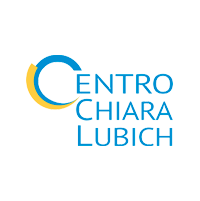Igino Giordani profile
“As I entered a new century and elementary school, precisely in 1901, my father hired me to work with him as a bricklayer in my free time and summer holidays. I remember earning 5 pennies a week, the equivalent of one Italian lira every four weeks. I liked the trade and I strongly desired to become autonomous. And I viewed all this from an ethical and heroic point of view.”
This is how Igino Giordani (or “Foco” as he was called later) starts off relating an adventure that he lived with intensity of thought and ardour of ideals. He had his own personal way of fighting to reach great goals for humanity such as freedom, social justice and peace (at the service of the “need of love between peoples”, he wrote in 1919). To meet these goals he assumed precise cultural and political commitments during the crisis of the old liberal State, in the anguish of the totalitarian regime, and then in the rising Italian democracy. He also gave witness with his life and proclaimed with his pen ecclesial realities that preceded some of the contents of the Second Vatican Council.
Thanks to the aid of a benefactor he had been able to continue his studies. Called to the arms in 1915, he refused to fire against others (“no enemies did I see”), but in opening a passage through a barricade at great personal risk earned a silver medal and was left with a permanent disability.
He later received a Bachelor of Arts degree and undertook various professional activities. As political restraints prevented him from teaching, he went to the United States where he studied library science and later was employed as such in the Vatican library. To support his family, a wife and four children, but also for an irrepressible vocation to write, he was an extremely productive author and journalist, producing thousands of articles, a few hundred booklets and essays, more than a hundred books. He wrote about the Fathers of the Church, apologetics, asceticism, hagiography, ecclesiology, and politics and he wrote fiction as well.
He became well-known both in Italy and abroad, as can be seen by the number of his books that have been published in various Italian editions and that have also been translated in Belgium, France, the United States, Argentina, Brazil, Spain, Czechoslovakia, Serbia, Portugal, India, Japan and China. Some of his books continue to be translated today, even in Arabic.
He knew a variety of languages and also published some translations he had done from Greek and Latin and some modern languges.
He wrote articles in both Italian and foreign newspapers and magazines – like the “Commonweal” of New York and the “Novidades” of Lisbon. He was editor of various Italian daily newspapers (“Il Quotidiano” 1944-1946, “Il Popolo” 1946-1947) and periodicals (“Il Popolo Nuovo” 1924, “Parte Guelfa” 1925, “Fides” 1930-1962, “La Via” 1949-1953, “Il Campo” 1946, “Citta’ Nuova” 1959-1980).
He is a typical example of a man of culture, a culture which is not purely academic but of wide ranging scope. At present a variety of young students in universities both in Italy and abroad are preparing degree theses on one or another aspect of his versatile witness of life and thought, thereby also making him known to their professors.
His first experience in politics was in the 1920’s with Luigi Sturzo, who held him in high esteem, and who availed of his services also in the press. He took up political action again with De Gasperi and from 1946 to 1953 was in the constituent assembly and then a member of Parliament –“the peace Member of Parliament”, as he liked to define himself.
In September 1948 he met Chiara Lubich. Struck by the profound spirituality of the Focolare Movement he immediately adhered, collaborating to bring out various interior and social aspects, to the point that he is considered to be a co-founder.
“A fire had entered into me”, he would confide later. From this point on, his political behaviour took an upward turn: from being a lashing out polemist, as he had been in 1924-25, he became a supporter of dialogue, proposing cross-party agreements in favour of peace, and promoting politics in which even the opposition is loved. Together with a another politician, a social democrat, he presented the first proposal for a law permitting conscientious objection.
As a Christian he declared: “before I was searching, now I have found”. He expressed this especially with regards to the fact that the laity could also be Church. As a focolarino he opened concrete ways for an ecclesiology of communion by proposing the full inclusion of married people into the life of the focolare, in unity with celibate people and priests.
In his last years he dedicated himself particularly to ecumenical activities as director of the “Centro Uno”.




